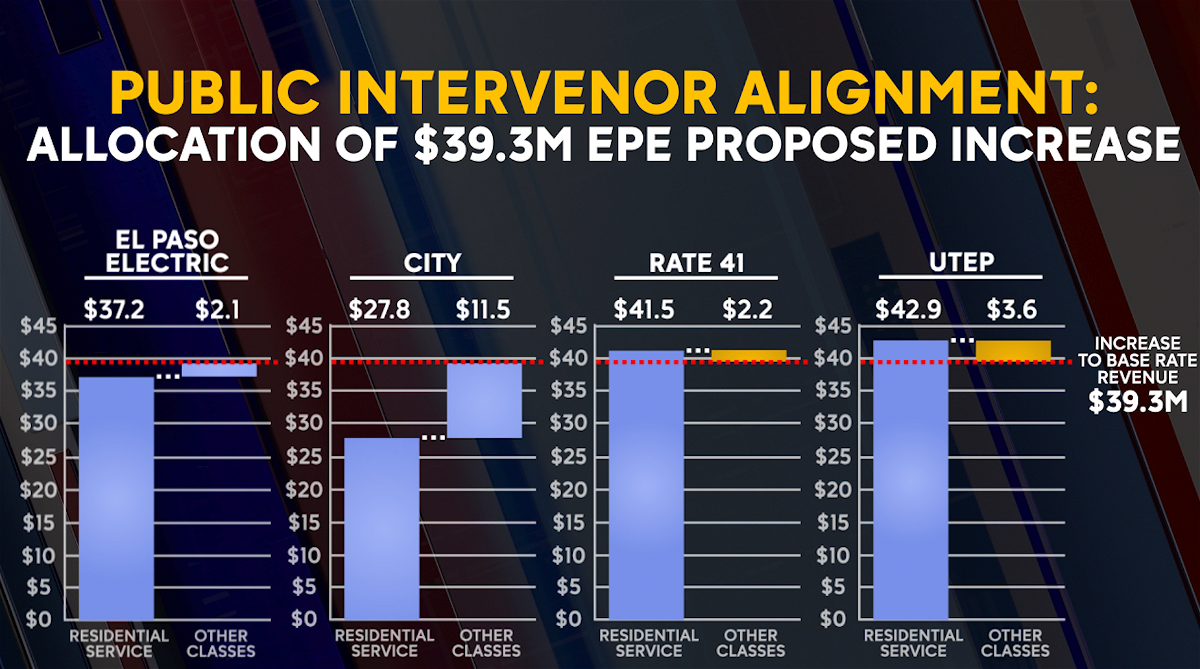ABC-7 Xtra: Where things stand with the El Paso Electric Rate increase
EL PASO, Texas (KVIA) -- A proposed hike to your electric bill has been on hold for nearly a year.
El Paso Electric requested a rate increase of $41.8 million back in July 2021. The increase was meant to be spread out among homeowners, businesses and other entities.
El Paso Electric said the increase is necessary to recover the costs of plant and generator upgrades to keep the power flowing.
The utility cannot raise its rates like a private company raises its prices.
The Texas Public Utility Commission and El Paso's City Council regulate the utility. Since last fall, El Paso city leaders have been fighting the rate increase because they believe residential customers are bearing too much of the burden.
El Paso Electric said the average residential customer would see their bill increase by $11.76 per month if approved.
The city wants the rate increase to be spread out more evenly among different customers.
For context, El Paso Electric said rates are broken into two groups -- residential and commercial. Within those groups, rate levels vary.
There is the Rate 41 Group, which includes the local school districts, the County of El Paso, the Housing Authority among others. This group is an intervenor in the rate case.
There is also UTEP, which is under Rate 25. El Paso Electric tells ABC-7 that the university gets a discount under state law, so 20% is deducted from each bill. UTEP is also an intervenor.

In February, City Council received a presentation (See Graphic) on where things stood in the rate case. At the time, City Attorney Karla Nieman explained that El Paso Electric's proposal called for $37.2 million of the increase to be paid for by residential customers, while $2.1 million goes to the rest.
In the City's counter proposal, it had residents paying $27.8 million, with the other groups paying $11.5 million.
Nieman said Rate 41's proposal calls for residential customers to pay $41.5 million, while they get a discount of $2.2 million.
UTEP's proposal calls for residential customers to pay $42.9 million, while the university would pay $3.6 million less than it already does.
At the time, City Manager Tommy Gonzalez told council members, "In essence by it [the rate increase] going up the residents are subsidizing them and all of these entities either get local taxes from the resident or they get state taxes from the resident and other residents throughout the state of Texas."
City council instructed Gonzalez to send out a letter to the different Rate 41 entities. This was sent ahead of mediation to see if the city, and the various intervenors, could come to an agreement.
The letter read in part, "If our residents cannot afford their utility bills, they cannot afford property taxes, basic living expenses, tuition, or other goods and services that benefit our local businesses. We urge that, in these discussions, you consider the impact of the rate increase on El Paso’s residents."
Attempts at mediation failed in late February. That means the case was sent back to the State Office of Administrative Hearings.
ABC-7 made multiple attempts to get a comment from Rate 41. The group's attorney, Chris Hughes, said he could not speak on behalf of the group. Weeks after ABC-7's original request, we received a statement on behalf of the group's members.
It reads in part:
"The City held a public workshop in which it presented its version of the status of the rate case. What the City omitted was the fact that Rate 41 funds are also taxpayer funds and the concessions that the Rate 41 Group had already offered in filed pleadings and in settlement negotiations. Unfortunately, the mediation was not successful. However, settlement negotiations have since been revived and a settlement in principle has been reached sufficient to cancel the hearing that was to resume today, March 22, 2022.
Details of this settlement will be made public when they are formalized and filed with the PUC."
A spokesperson for the Texas Public Utility Commission said that if an agreement cannot be reached, then a state judge would make a recommendation on the rate increase. After that, the PUC would make the final decision on whether to pass it rate increase as is or modify it.
